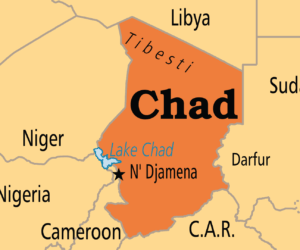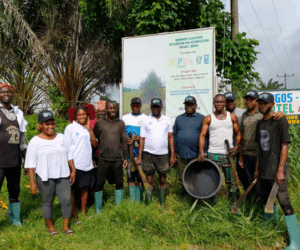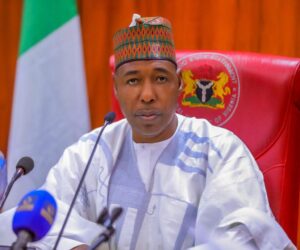0
Leaders and policy-makers in Nigeria have been cautioned against “false climate solutions” but to stay transparent in climate finance and equitable representation of frontline communities.
The caution was handed down at the 2025 South-South Regional Local Conference of Youth (LCOY Nigeria), organised by Clement Isong Foundation (CIF), in partnership with ActionAid Nigeria, Local Conference of Youth (LCOY Nigeria), and YOUNGO (Youth Constituency to the UNFCCC).
Under the Strategic Partnership Agreement II (SPA II) project, implemented by ActionAid Nigeria and funded by DANIDA, in Uyo on Friday.
Delivering a keynote address on the conference’s theme “Youth at the Forefront of Climate Justice: Accelerating Action for a Just Transition,” Mr. Tijah Bolton-Akpan, Executive Director of Policy Alert and Acting Chairman of the Akwa Ibom State Government Climate and Oil Derivatives Accountability (AKGCODA), called for justice-centered climate action, accountability in the fossil fuel sector, and youth inclusion in policy frameworks.
Challenging the youth to push for accountability and transparency from leaders, Bolton-Akpan said, “Do not just ask questions—question the answers.”
He also tasked the federal governments of Nigeria and private actors on climate Justice to move from policy drafting to implementation, by consciously working to ensure that youth are part of decision-making spaces.
In his opening remarks earlier, Mr. Elkanah Oluyori, Executive Director, Clement Isong Foundation,
urged the youth to take ownership of climate solutions rather than wait to be included. He emphasized the need for courage, innovation, and leadership in building sustainable alternatives. “Are we going to be the victims or the vanguards of the crisis?” he asked.
Highlighting the importance of empowering young people, women, and marginalized communities to promote climate accountability, democratic governance, and sustainable livelihoods, Dr. Caroline Gordian, Project Lead, CIF, noted that when youth are equipped with the right tools and platforms, they become active creators of change, not passive recipients of aid.
Our correspondent reports that the plenary session which explored the intersection of youth innovation, digital activism, and policy inclusion in climate governance, Co-creating Climate Justice: Youth Innovations, Challenges, and Pathways for Collective Action, and Youth Inclusion in Subnational/National Climate Action Agenda feature, encouraged youth to move beyond rhetoric by leveraging research, innovation, and partnerships to translate advocacy into measurable climate action.
Breakout and Thematic Group Work, designed to identify local challenges, propose youth-driven solutions, and draft policy recommendations across, dealt with issues such as: Climate Adaptation and Ecosystem Resilience, Sustainable Agriculture and Climate Justice, Renewable Energy and Climate Innovation, Youth Innovation and Leadership, Climate Education and Gender Equity, Urban Sustainability and Circular Economy, and Climate Finance
Highlights from the group discussions included: Youth-led mangrove restoration and coastal resilience projects. Promotion of agroecology and organic farming for climate-friendly food systems.
Adoption of a 40% renewable energy target by 2030 across the region. Institutionalization of youth representation in environmental policy councils. Integration of climate education into school curricula and gender-responsive budgeting, and Establishment of a Regional Youth Climate Fund to support innovative projects, leveraging AI for transparency in fund management.
A communique issued at the end of the meeting therefore identified youth as key drivers of the Just Transition — leading solutions for climate justice, energy transition, and sustainable livelihoods. It further declared climate justice a moral and human rights issue that demands intergenerational collaboration and inclusive governance.
“Agroecology, renewable energy, and innovation are powerful pathways for resilience and green job creation. Governments and private actors must move from policy drafting to implementation, ensuring youth are part of decision-making spaces. Digital activism and technology amplify youth voices and hold leaders accountable for environmental governance,” the communique stated.
While acknowledging the resilience, creativity, and leadership skills of young people as key drivers shaping a sustainable and equitable future, the 2025 South-South Regional Local Conference of Youth (LCOY Nigeria) made a strong case for amplified regional voices, as well as linking local solutions to global advocacy.








